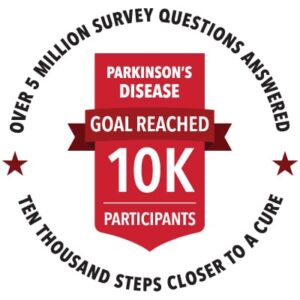The 23andMe more severe non-motor symptoms.
more severe non-motor symptoms.
These studies, which will be published later this year, were made possible by the participation of the now more than 10,000 people in 23andMe’s Parkinson’s Research Community, the world’s largest cohort of genotyped Parkinson’s patients. Our work has also received vital assistance from 23andMe’s partnerships with organizations like The Michael J. Fox Foundation, The Parkinson’s Institute, and the Cleveland Clinic.
Differences in Symptom Severity
In our recent study, 23andMe’s researchers studied the symptoms of thousands of Parkinson’s patients of European descent. We found differences in symptom severity between different groups:
– Patients with a mutation in the LRRK2 gene had less severe motor symptoms.
– Patients with a higher body mass index (BMI) experienced more severe symptoms.
– Women had less severe motor symptoms but more severe non-motor symptoms.
We also found factors that were associated with earlier age of Parkinson’s onset, which may be of potential relevance to clinicians deciding when to screen for the disease. Patients who carried a GBA gene mutation, patients not of Ashkenazi Jewish descent and patients with higher BMIs tended to have earlier ages of onset.
Our researchers also confirmed previous studies that showed that both smoking and caffeine consumption was associated with a lower risk for Parkinson’s. (We do not suggest anyone take up smoking.)
Much to Learn
Such information on the onset and symptomology of different populations could benefit both patients and their doctors. It could give both an idea of what to expect, and what’s needed in building a treatment plan.
We still have much to learn about this disease. For instance, the relationship between genes and environment in causing Parkinson’s. We also want to know how the disease develops differently in different people. And we want to know the role genetics plays in influencing how patients respond differently to different treatments. Participants in the 23andMe Parkinson’s Research Community continue to help researchers make strides toward a greater understanding of Parkinson’s. We hope it will also lead to new treatments for Parkinson’s disease.
Learn more about how you can become part of the genetics revolution underway in Parkinson’s.



